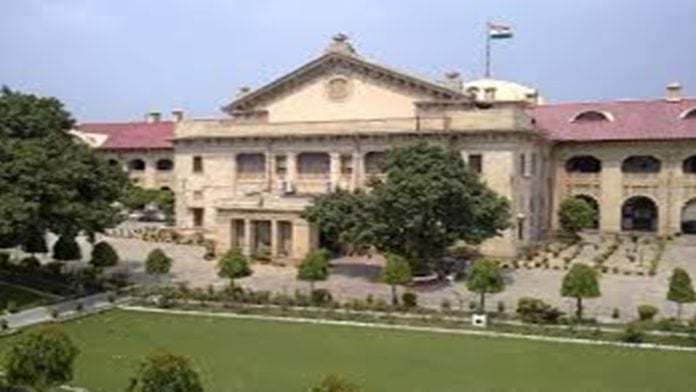The Allahabad High Court while dismissing the petition said that a writ petition challenging the Advocate General’s refusal to grant permission for initiating criminal contempt proceedings is non-maintainable.
The Division Bench of Justice Shekhar B Saraf and Justice Manjive Shukla passed this order while hearing a petition filed by Arun Mishra.
This is a writ petition under Article 226 of the Constitution of India wherein the writ petitioner is challenging the order dated May 7, 2024 passed by the Advocate General of the State of Uttar Pradesh. This order was passed by the Advocate General on an application made by the petitioner seeking consent of the Advocate General for filing criminal contempt application under Section 15(3)(b) of the Contempt of Courts Act, 1971.
Counsel appearing on behalf of the respondent/Advocate General of the State of Uttar Pradesh submitted that the petition is not maintainable as the order of the Advocate General refusing to grant permission for initiating criminal contempt proceedings cannot be challenged by way of the petition.
He submitted that the Supreme Court has decided this issue in P.N Duda v P Shiv Shanker and Others reported in (1998) 3 SCC 167 and has placed reliance in the case thereof to buttress his arguments that the remedy for refusal of grant of consent by the Advocate General/Attorney General is filing an application before the Division Bench dealing with the criminal contempt matters.
The Court are at consensus ad idem with the submissions made on behalf of the respondent. Upon examination of the paragraphs of the aforesaid judgement cited by the counsel appearing on behalf of the respondent, the Court found that the Supreme Court has held that in cases of refusal of consent by the Advocate General/Attorney General no purpose would be served by the court spending its time to find out whether the Advocate General/Attorney General should have given a decision one way or the other. The petitioner is not without remedy. It is open to him always to place the information in his possession before the court and request the court to take action.
“In light of the above ratio laid down by the Supreme Court, we are of the view that this writ petition is not maintainable before the Court. The petitioner is at liberty to move an appropriate application before the Division Bench dealing with the criminal contempt matters, in accordance with the High Court Rules and the decision of the Supreme Court noted above”, the Court observed while dismissing the petition.


